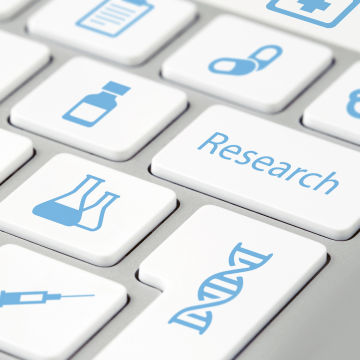- Texas Medical Center, 6560 Fannin St. #1680, Houston, TX 77030
- Heights Office, 427 W 20th St Houston, TX 77008
The Effects of COVID-19 Disease on Heart Rhythm

- posted: Apr. 15, 2021
The COVID-19 disease caused by the novel coronavirus (SARS-CoV-2) created a public health crisis that has strained communities and healthcare systems around the world. Although, evolving research enables physicians to treat the complications of COVID-19 disease more effectively in emergency departments and intensive care units (ICU) worldwide. However, individuals with certain preexisting conditions continue to be disproportionately affected by the complications of this viral infection.
Latest Studies on Covid-19 in Relation to Heart Rhythm Disorders

Recent research has shown that infection with the novel coronavirus increases the risk for cardiac arrest and heart rhythm disorders (arrhythmias), including atrial fibrillation (Afib). Although COVID-19 appears to cause damage to heart cells, the viral infection may not represent the full picture. Therefore, researchers at the University of Pennsylvania discovered arrhythmias were more likely to develop in people with preexisting chronic diseases.
Furthermore, compared to healthy individuals, people infected with the novel coronavirus, who also live with cardiovascular disease have;
- An increased risk of heart damage
- Higher admission rates into ICU
- Higher rates of death
Experts developing guidelines for the care of patients with arrhythmias and COVID-19 currently believe that atrial fibrillation alone is unlikely to increase the risk of getting infected with the novel coronavirus. However, afib usually comes with other underlying heart diseases, which weakens the heart and lungs causing inflammation in the body. Thus, people with chronic cardiovascular conditions are more likely to become severely ill and die if they develop COVID-19 disease. Moreover, weakened immune systems leave patients with heart disease and other chronic conditions particularly vulnerable to severe illness when infected with SARS-CoV-2. People with chronic diseases must limit social interaction and take precautions to reduce their risk of developing COVID-19.
If you have risk factors for atrial fibrillation or experienced irregular heartbeat symptoms, consult your physician or a cardiac electrophysiologist. Managing your heart rhythm disorder is a key component of caring for your health and avoiding severe complications. Dr. Alireza Nazeri and his team design individualized treatment plans for patients with Afib and other arrhythmias.
Standard office and virtual consultations are available. Visit Dr. Nazeri’s website at www.MobitzHeart.com or call (713) 909-3166.
Schedule your AFib Screening and Early Detection Consultations
Mobitz AFIb Clinic
P. 713-909-3166
Silent AFib = AFib Without Symptoms
Are You At Risk For AFib?
-
Read My ECG
Worried about your Apple Watch ECG Results? Get an expert virtual evaluation from home!
-
AFib Catheter Ablation
Personalized Assessment and Treatment at Dr. Nazeri's Clinic. Explore our AFib Clinic today.
